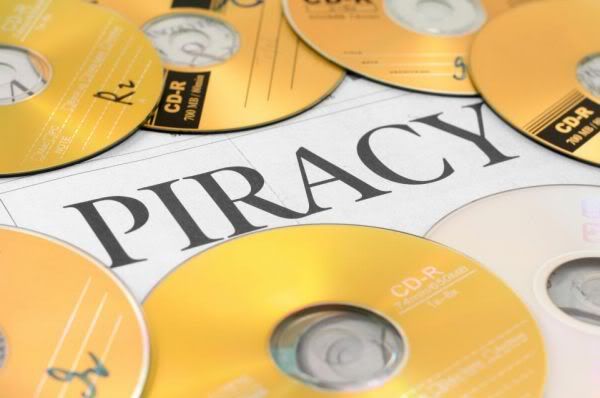
Lemahnya perlindungan Hak Kekayaan Intelektual, International Intellectual Property Alliance® (IIPA®) mengeluarkan petisi yang mengancam Indonesia.
Michael Schlesinger, wakil dari IIPA dalam press releasenya mengungkapkan, “Indonesia telah gagal untuk memenuhi kriteria kelayakan yang sesuai dalam GSP yaitu perlindungan dan penanganan masalah hak kekayaan intelektual.” Tentu saja ini akan mengakibatkan posisi Indonesia dalam peta perdangan bebas dunia berada dalam kerugian. Jika petisi ini dikabulkan oleh Komisi Perdagangan Amerika, Indonesia akan kehilangan keuntungan untuk ekspor barang bebas pajak ke pasar Amerika. Padahal baru-baru ini Indonesia lewat program GSP telah berhasil mengekspor barang bebas pajak ke Amerika senilai $1,9 milyar di tahun 2010.
Berikut ini kutipan siaran pers dari IIPA:
IIPA REQUESTS U.S. GOVERNMENT REVIEW OF UKRAINE’S AND INDONESIA’S ELIGIBILITY FOR TRADE BENEFITS UNDER GENERALIZED SYSTEM OF PREFERENCES PROGRAM
Washington, D.C., January 9, 2012 – International Intellectual Property Alliance
® (IIPA®) has filed petitions asking the United States Trade Representative to consider limiting or withdrawing Ukraine’s and Indonesia’s Generalized System of Preferences (GSP) benefits. IIPA cites deficiencies in IPR protection and enforcement, as well as market access concerns, in both Ukraine and Indonesia for copyright industry products, as evidence both countries fail to meet the criteria under the newly-renewed GSP trade program. Under the GSP program, which provides preferential duty-free entry to the United States for products from beneficiary countries, the President is required to consider “the extent to which such country is providing adequate and effective protection of intellectual property rights,” and “the extent to which such country has assured the United States that it will provide equitable and reasonable access to [that country’s] markets” in determining whether a country qualifies for the program.IIPA seeks measurable progress by each country in improving IPR protection and market access for copyright industry products and, failing that, calls on the U.S. government to withdraw, in whole or in part, their GSP benefits.
Eric Schwartz, IIPA Counsel, remarked, “Unfortunately, at present in Ukraine, both hard copy and digital copyright piracy is rampant, and this problem is getting insufficient attention from the Government of Ukraine. As a result, piracy rates are exceedingly high — among the highest in Europe. The use of unlicensed business software by Government ministries is a long-festering problem that the Government of Ukraine has not corrected. Weak enforcement of copyright – for the recording, film, music and book publishing, and entertainment and business software industries – remains the norm in Ukraine, and in the past year the situation has substantially worsened. Most damaging is that Ukraine exports its piracy, especially digital piracy, into both the EU and elsewhere in the CIS. There remain several notorious websites hosted and/or licensed by Ukrainian rogue collecting societies that, while identified to Ukrainian officials, continue to act with impunity.
In addition, we are extremely troubled by recent resource-intensive investigations by another branch of government into the operation of legitimate, industry-backed collecting societies, while rogue societies such as Oberih and Avtor, which do not have relevant agreements with rightholders, continue to openly flout Ukrainian laws by granting licenses to notorious rogue sites like mp3fiesta. These serious deficiencies in the protection of intellectual property are exacerbated by burdensome market access barriers and heavy-handed policies that discriminate against foreign rights holders and limit legitimate
commerce.”IIPA Counsel Michael Schlesinger noted, “Indonesia fails to meet the GSP eligibility criteria to provide adequate and effective intellectual property rights protection and enforcement, due to extremely high levels of physical and online piracy in the country. The business software piracy level remains among the highest in the world and has gotten progressively worse in the past several years. The Indonesian Government has failed to mobilize against growing online and mobile piracy threats, and markets like Harco Glodok remain notorious for physical pirated materials. Indonesia also maintains restrictive market access barriers, failing to afford reasonable access for creative products to the Indonesian market. A requirement to print films locally, a high customs tariff for audiovisual products, a screen quota, and a ban on distribution of audiovisual products, are examples of how the Indonesian Government hinders trade in legitimate creative products.”
sumber gambar: http://news.hackerjournals.com

[…] dengan Indonesia sendiri? Dengan penetrasi angka pembajakan yang cukup tinggi, agak sulit mengukur konsumsi musik digital atau fisik oleh masyarakat Indonesia. […]
[…] diverifikasi karena gue tidak menemukan sumber resmi. Jika ditarik mundur setahun lalu, sebetulnya pemerintah Indonesia sudah mendapatkan ancaman sanksi boikot dari Amerika karena lemahnya perlindungan Hak […]
[…] musik yang kaitannya kepada penjualan produk lagu dalam format digital. Kenyataan bahwa tingkat pembajakan di Indonesia yang tinggi apakah dapat menandangi investasi membuat layanan musik? Meskipun akan semakin banyak layanan […]
[…] musik yang kaitannya kepada penjualan produk lagu dalam format digital. Kenyataan bahwa tingkatpembajakan di Indonesia yang tinggi apakah dapat menandangi investasi membuat layanan musik? Meskipun akan semakin banyak layanan […]